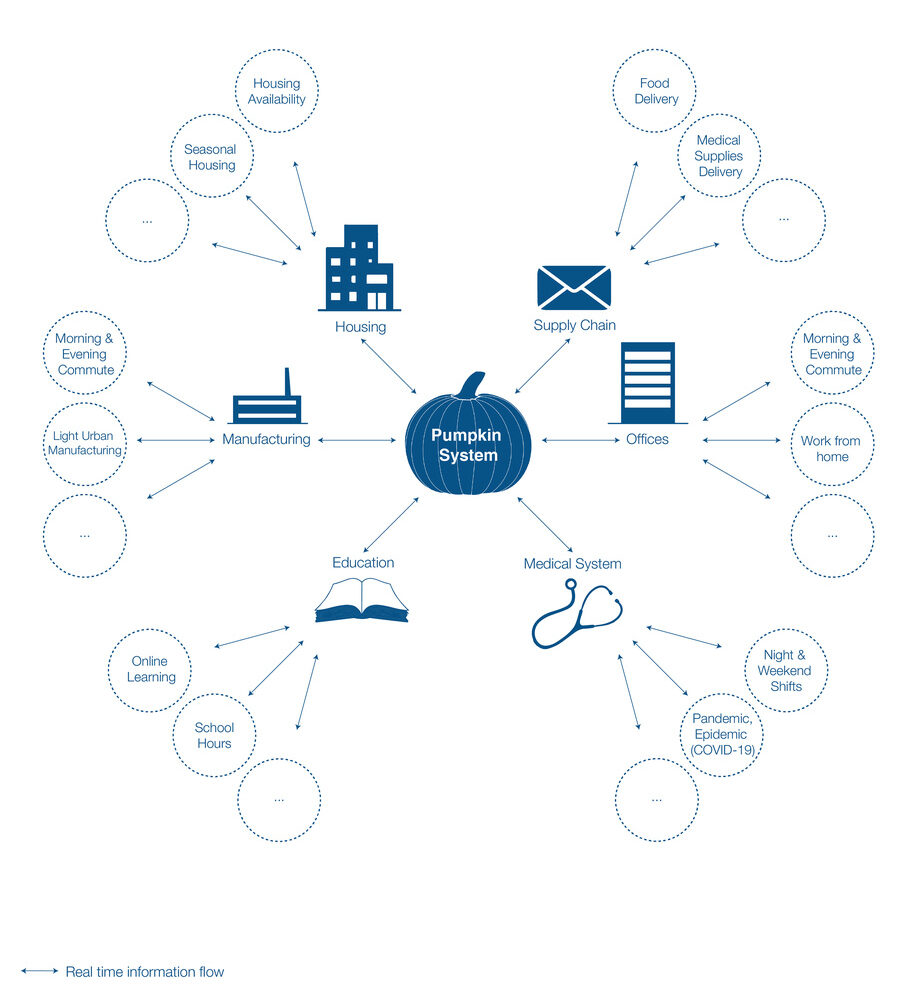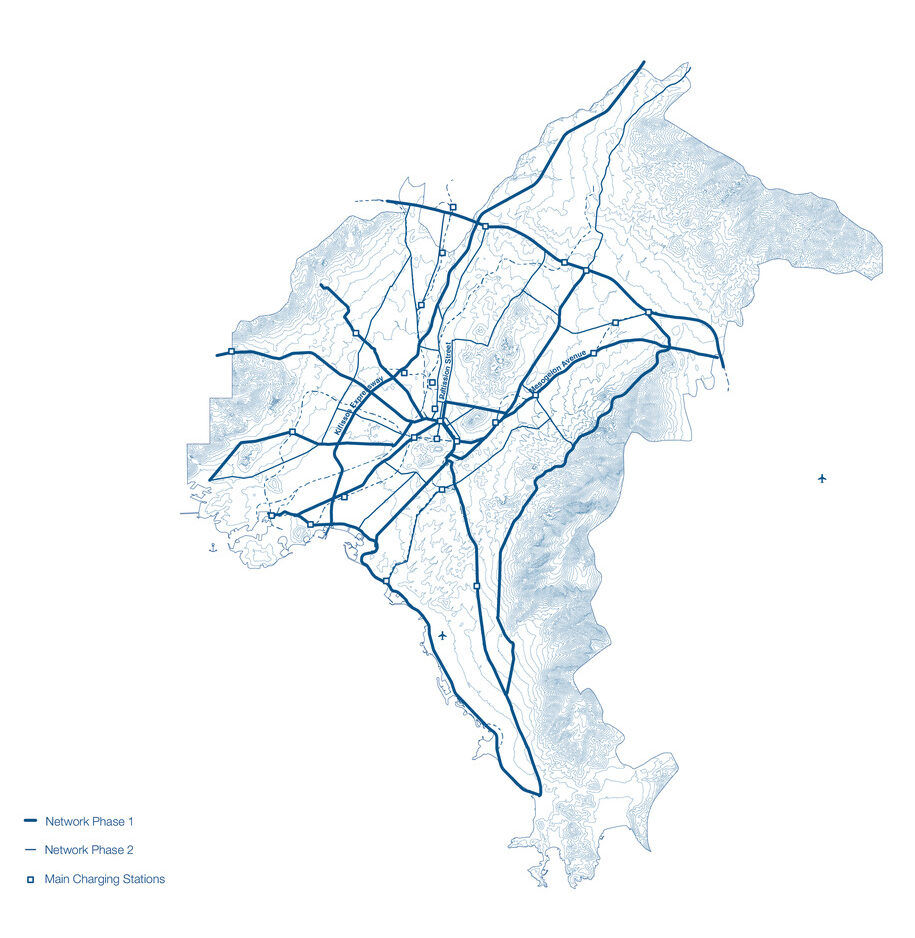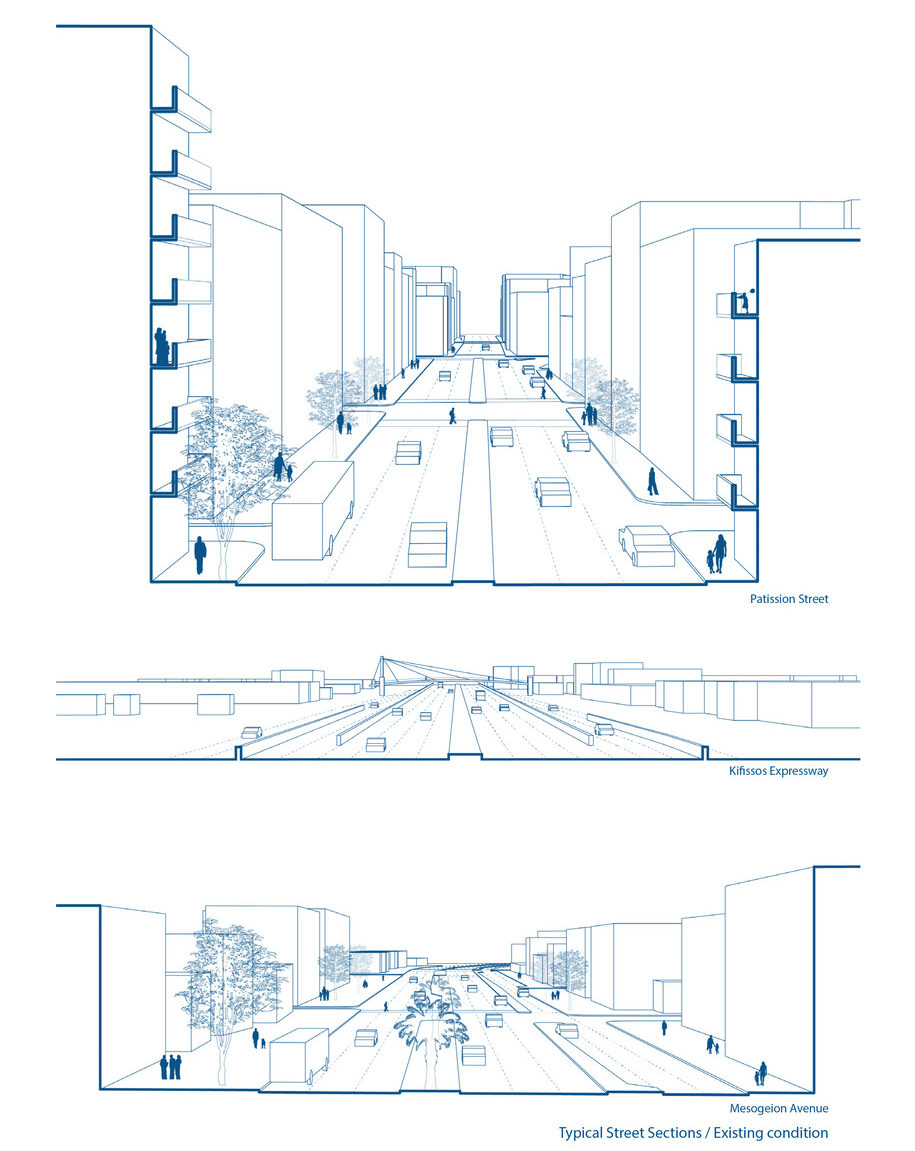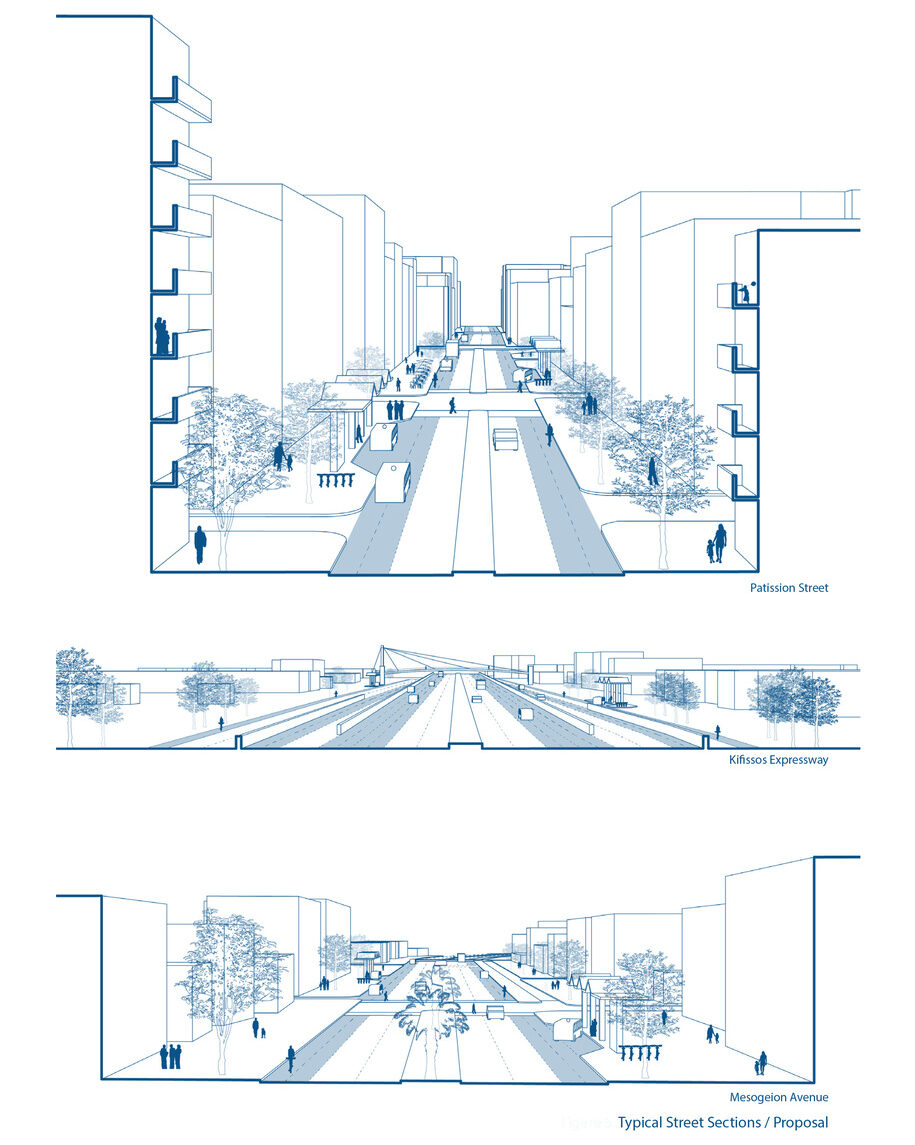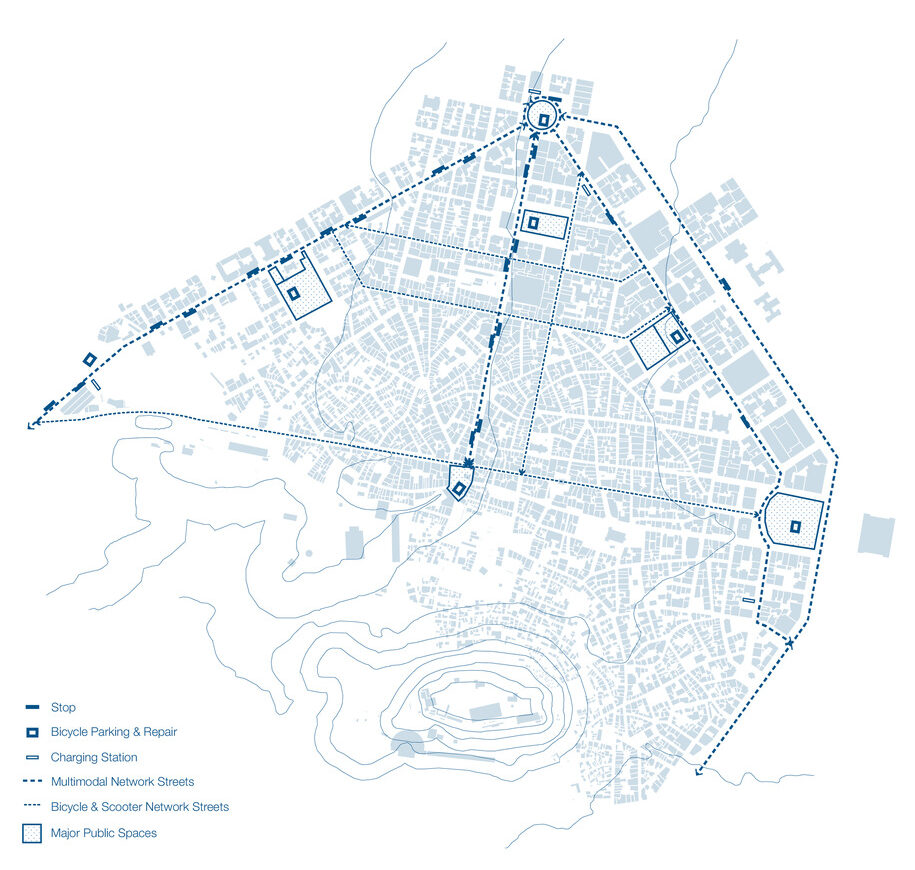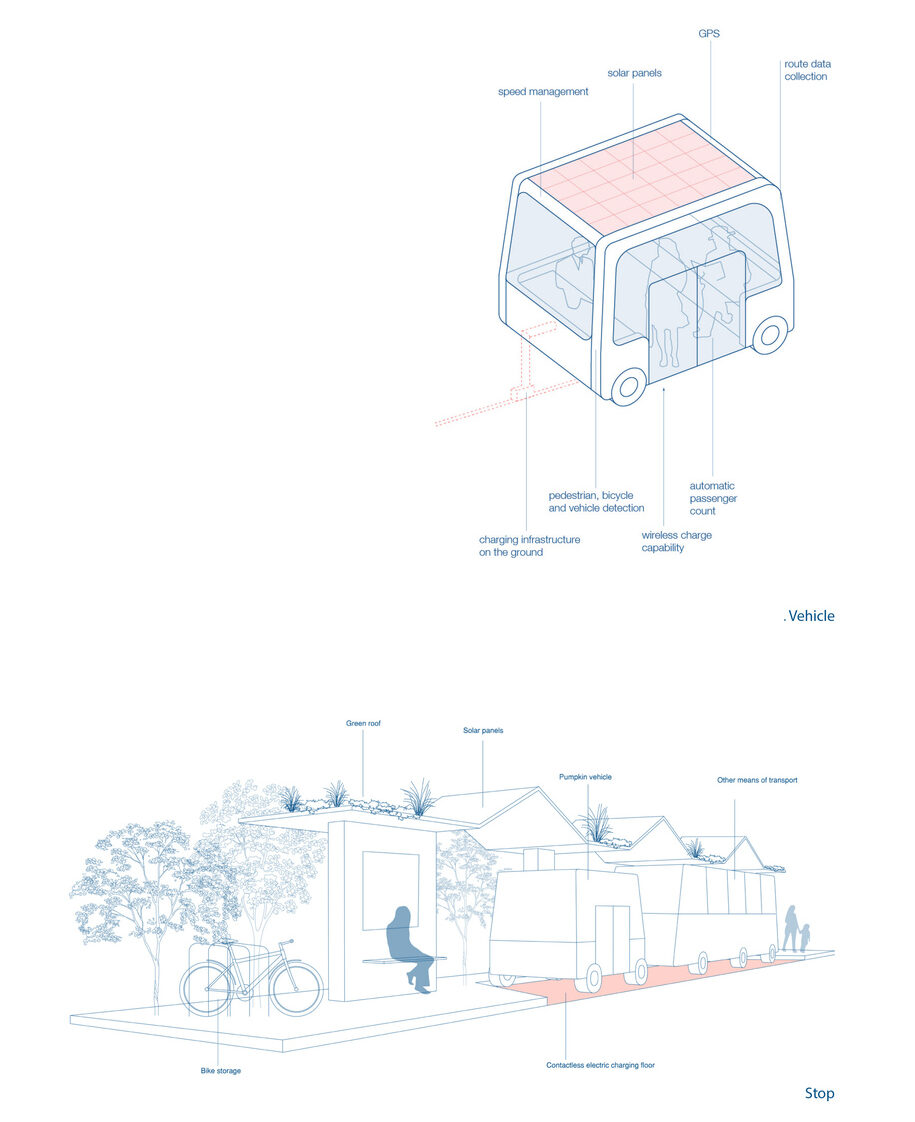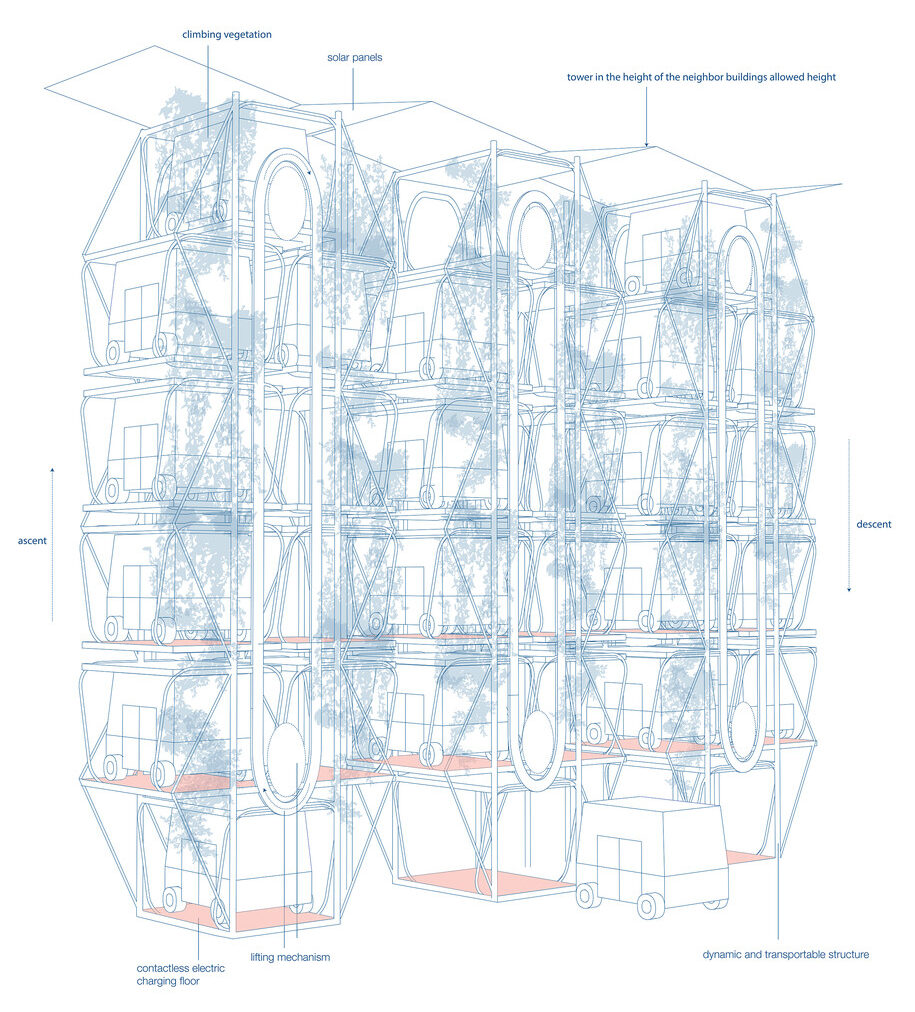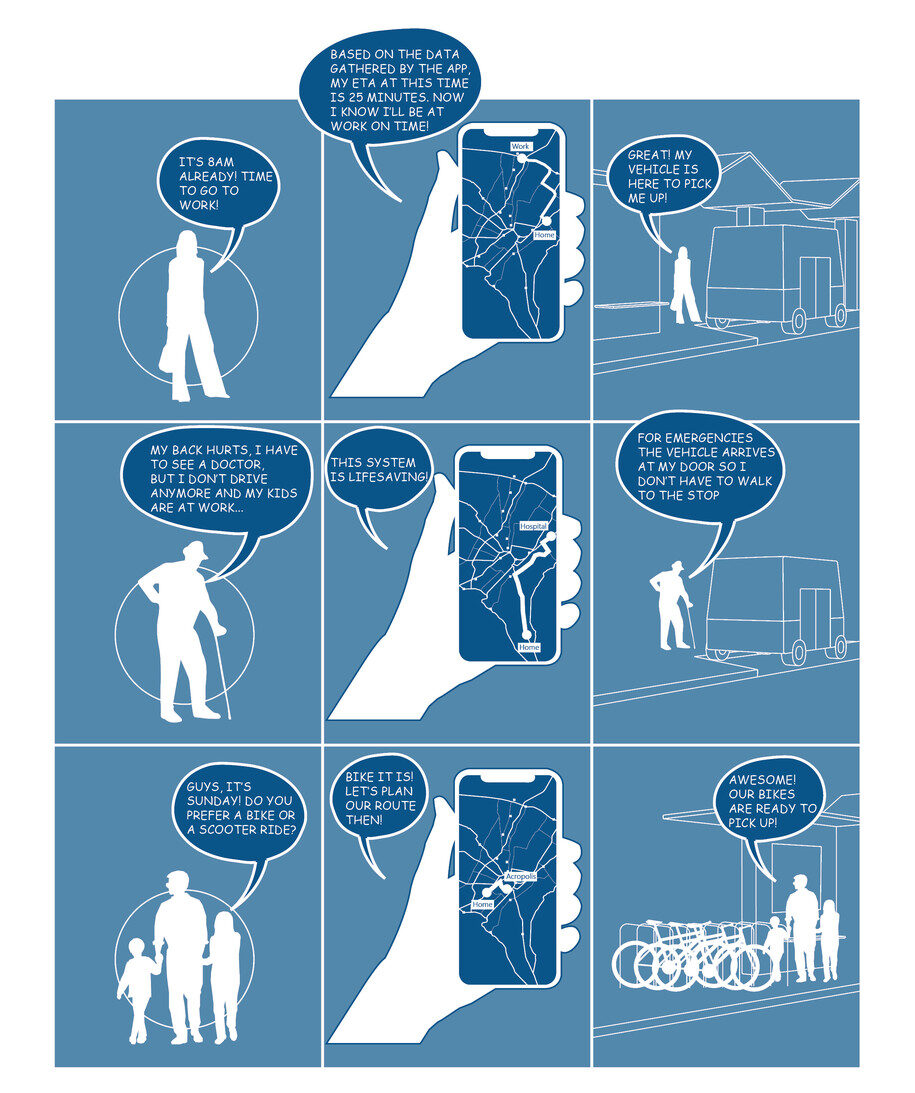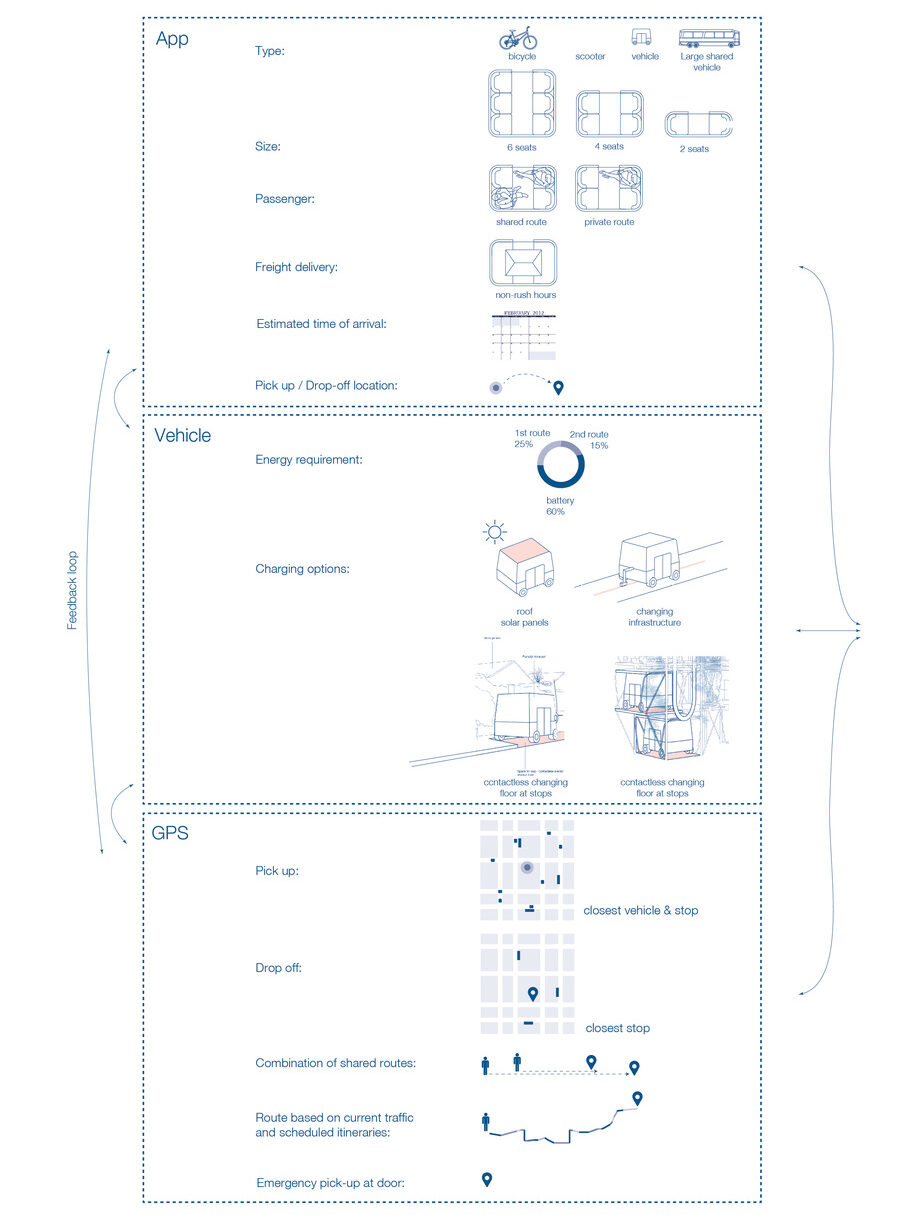Foteini Bouliari & Sophia Michopoulou designed “The Pumpkin”, a new public transport for the city of Athens, which was awarded with the “Non-Award” in Nonarchitecture Competition. Inspired by the Covid-19 situation, and the way transportation changed, they propose a system that can perceive its environment and take actions that evolve according to historical events and real time information through machine learning algorithms.
-text by the authors
The coronavirus raised many questions regarding the organization of the economy and society as a whole. The outburst of the pandemic showed how economic disruption can have environmental benefits visible on a large scale (reduction of air pollution in cities across the globe, regeneration of ecosystems etc.). The unexpected lockdown caused a lot of systems to crash and resulted in a different organization of societies. The first wave of the pandemic found the medical system unprepared to deal with the new situation and a large number of patients were unable to be treated.
Movement of people was minimized in the wake of global restrictions that were put in place to help contain the spread of the virus. Immediate effects included travelers choosing more local, rural destinations that don’t require air travel, the desire to avoid large crowds and the ability to work from home.
– How can we design a systematic adaptation to future crises? We propose a system that can perceive its environment and take actions that evolve according to historical events and real time information through machine learning algorithms.
– How can this idea adapt to transportation? During the pandemic, the safest way to live together is to invest in public spaces. Simultaneously, we need a way to move between places that is sustainable and addresses the environmental effects of transportation. A systematic organization of urban transportation can help societies function under any. It can also minimize congestion, better manage the unexpected and provide a narrative for other systems (housing, medical, education, waste management control etc).
Why Athens? The spontaneous urban development of the modern city of Athens under the political and social circumstances of the 19th and 20th century has led to a scarcity of open and green spaces. At the same time, the dominance of the car as the main mode of transportation in the post-war era resulted in several environmental and social issues facing the city today such as; noise and air pollution, congestion, further reduction of open spaces and spaces for the movement of pedestrians as well as social inequalities due to the lack of affordable and efficient transportation options.
The proposed system of shared, electric and autonomous vehicles, the Pumpkin transport, will be able to adapt to future circumstances and enter different modes (quarantine, night, emergency, free transportation etc.) accordingly. The algorithm will also be informed by changes in various functions of the city such as housing, education, the supply chain, work, the medical system and the manufacturing sector.
Credits & Details
Project name: The Pumpkin
Project subtitle: A new public transport for the city of Athens
Typology: Urban
Competition organizer: Young European Architects & CA’ASI Architects – La benale di Venezia 2021
Project location: Athens
Awards: Non Architects Competition – Non award
Tools used: Rhino, VRay, Photoshop, Illustrator
Design year: 2020
Design team: Foteini Bouliari, Sophia Michopoulou
Instagram accounts: Foteini Bouliari, Sophia Michopoulou
READ ALSO: Εξοχική κατοικία στον Άγιο Τύχωνα Λεμεσού | από το Μάρκο Σκαμπάλη
